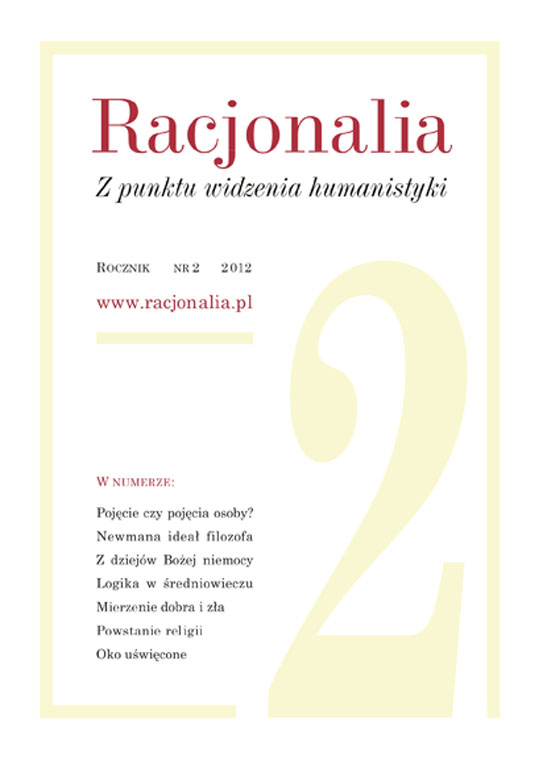Powstanie religii w świetle antropologii i psychologii kognitywnej. Koncepcja Pascala Boyera
DOI:
https://doi.org/10.15633/r.254Słowa kluczowe:
anthropology, cognitive psychology, explaining religion, nature of religious beliefs, origins of beliefs, Boyer P.Abstrakt
The diversity of religious beliefs still surprises even scholars most familiarwith these phenomena. What is most surprising is the sheer numberof practices that reflect relations between deities and men – ranging from„devotion”, „cooperation”, to trying to „trick” deities. There have beenmany theories explaining the cause of these relations and the diversityof religious beliefs including the simplest, that these relations are true andreflect an ontological order.
Leaving the question regarding the existence of supernatural beingsaside, we’re still left with a very interesting issue of human beliefs. Whydo we have such different beliefs? Why are we so attached to them? Do theyhave anything in common? What were the origins of religious beliefs? Did they changed through time?
Pascal Boyer, French anthropologist studying the human mind and theprocess of learning among other issues tries to answer these, and otherquestions. He bases his answers on scientific researches of other scholars – anthropologists, evolutionary biologists, cognitive psychologists andlinguists. Boyer employs researches from such different scientific fieldsto find a new and very interesting way to try to reach the origins of religious beliefs, to reconstruct the process of forming beliefs concerning themetaphysical/non-physical world. He also tries to explain the nature of relations between men and deities. As a result of his efforts he created a theory explaining beliefs and religious behaviors that refers only to the mechanisms of human brain, and this theory is the subject of this article.
Pobrania
Opublikowane
Numer
Dział
Licencja
Twórca oświadcza, że służą mu prawa autorskie do utworu i że nie są ograniczone w zakresie objętym niniejszym oświadczeniem oraz że utwór jest dziełem oryginalnym i nie narusza praw autorskich innych osób.
Twórca zezwala Uniwersytetowi Papieskiemu Jana Pawła II w Krakowie na nieodpłatne, niewyłączne i nieograniczone w czasie korzystanie z utworu, to jest:
- utrwalanie i zwielokrotnianie: wytwarzanie egzemplarzy utworu techniką drukarską, reprograficzną, zapisu magnetycznego oraz techniką cyfrową;
- obrotu oryginałem albo egzemplarzami, na których utwór utrwalono (wprowadzanie do obrotu, użyczenie lub najem oryginału albo egzemplarzy, publiczne wystawienie, wyświetlenie, a także publiczne udostępnianie utworu w taki sposób, aby każdy mógł mieć do niego dostęp w miejscu i w czasie przez siebie wybranym);
- włączenie utworu w skład utworu zbiorowego;
- udzielanie przez Uniwersytet Papieski Jana Pawła II w Krakowie sublicencji Creative Commons Uznanie autorstwa-Użycie niekomercyjne-Bez utworów zależnych 3.0 Polska
Uniwersytet Papieski Jana Pawła II w Krakowie udostępnia utwór na Platformie Czasopism należącej do uczelni, na licencji Creative Commons Uznanie autorstwa-Użycie niekomercyjne-Bez utworów zależnych 3.0 Polska. Tym samym uprawnia wszystkich zainteresowanych do korzystania z utworu pod następującymi warunkami:
- zostanie podany autor i tytuł utworu,
- zostanie podane miejsce publikacji (tytuł czasopisma i adres internetowy do oryginalnie opublikowanego utworu),
- utwór będzie dystrybuowany w sposób niekomercyjny,
- nie będą tworzone utwory zależne.

